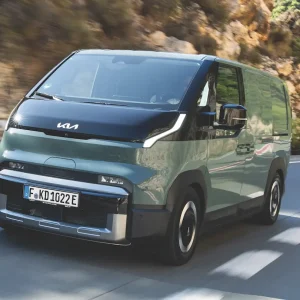One example of the new systems, which are actually more efficient than their manual counterparts, is the Vauxhall Movano Techshift. We’ve already sampled the same gearbox in the smaller Vivaro, but on Vauxhall’s largest LCV it costs £875 more than the standard six-speed gearbox. Available on the 125hp and 150hp versions of the 2.3 diesel, the auto comes out 2.1mpg more fuel-efficient than the manual on the L3H2 125hp diesel driven here, which is 12g/km better for CO2 emissions, with similar gains across all models. 
There is a slight payload reduction, just 8kg, thanks to the Techshift’s extra weight over the six-speed manual, but all other measurements remain the same.
Using average fuel economy figures for both the petrol and diesel models, it will take around 80,000 miles to pay back the extra outlay for the auto, but that will come down as fuel prices inevitably rise, and there are also maintenance and comfort benefits to the automatic, especially in urban situations, not to mention the potential resale advantage, especially if autos begin to increase in popularity across the market.
The bad news is that none of these transmissions yet offer the same level of control as using a clutch yourself, especially manoeuvring at low speed. They’re also slightly jerky on the shift, with the smoothest way of driving being to anticipate a gear change and lift off the throttle rather than maintaining it like you would with a conventional auto.
But once you’re in tune with the vehicle, it’s perfectly normal and the Techshift is a credible choice for people specifically wanting an auto. However, for now, a manual makes more sense for those that don’t desire the extra convenience of an auto if they’re doing a lot of stop-start city work.
Verdict
Techshift shows progress of LCV autos, although price is still high versus more popular manual.





